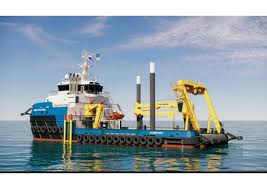Freight rates for Russian Urals crude to India rise by 20%, impacting exporters’ earnings amid U.S. sanctions and increased shipments.

Freight costs for transporting Russian Urals crude oil from Baltic ports to India surged by approximately 20% in February, reaching between $7 million and $8 million per one-way trip. This marks a significant increase from around $6 million in January, as reported by trade and shipping sources and supported by Reuters’ calculations. The rise in freight rates is attributed to U.S. sanctions and an uptick in Russian oil exports, necessitating a greater number of vessels.
The increase in shipping costs poses challenges for Russian oil exporters, who face reduced earnings as transportation expenses climb. The provisional loading plan for February from Russia’s western ports was revised upward by 19%, reaching 1.9 million barrels per day, primarily due to decreased output from domestic refiners.
The freight rate hike follows a 25% surge in mid-January when the U.S. imposed sanctions on 183
vessels linked to Moscow’s energy exports. Costs vary based on the involvement of sanctioned entities, with shipments from non-sanctioned Russian suppliers potentially securing better rates. Vessels operating within the so-called ‘dark fleet’—tankers avoiding Western sanctions—tend to be more expensive and require stringent checks for supplier legitimacy and compliance with price cap regulations.
Under the price cap introduced in 2022, suppliers of Russian crude can only access Western shipping and insurance services if the oil trades below $60 per barrel. The dark fleet, monitored by ship-tracking agencies such as Kpler, operates within the shadow economy to bypass these sanctions.
This surge in freight costs not only complicates logistics but also impacts the profitability of Russian oil exports, highlighting the far-reaching effects of geopolitical tensions and international sanctions on global energy markets.
(Source: Maritime Gateway)











